Episodes
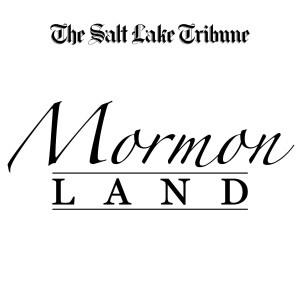
Wednesday Apr 20, 2022
Wednesday Apr 20, 2022
After bursting onto the scene in 2016 by releasing leaked videos of apostles for The Church of Jesus Christ of Latter-day Saints privately discussing a range of topics — from politics and piracy to same-sex marriage and marijuana — Ryan McKnight, with help from his colleague Ethan Gregory Dodge, set up a website called MormonLeaks, which gave way to the Truth & Transparency Foundation, and began exposing the inner workings of the Utah-based faith and, eventually, other religions.
Their goal: Push churches to be more open and honest about their practices.
They revealed how much top Latter-day Saint leaders were paid. They uncovered headline-grabbing abuse allegations. And they showed slices of how much wealth the LDS Church was accumulating. Now, they’re shutting down but with one last big scoop: the widest and deepest look ever at the church’s vast U.S. real estate holdings, totaling 1.7 million acres and making the faith the nation’s fifth largest private landowner.
On this week’s show, McKnight and Dodge discuss their latest findings, the work of their foundation, what it accomplished, why they’re closing shop and whether they achieved what they set out to do.
We want to hear from you! Take our survey here: bit.ly/mormonland
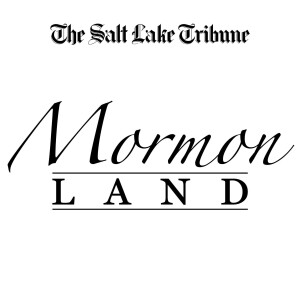
Wednesday Apr 13, 2022
Wednesday Apr 13, 2022
It’s Holy Week for Western Christians, which culminates Sunday with Easter.
The Holy Land is awash with pilgrims and tourists — including members of The Church of Jesus Christ of Latter-day Saints — who are soaking in the sites of Jesus’ last days.
It also signals the reopening of Brigham Young University’s Jerusalem Center for Near East Studies after a two-year pandemic pause.
In this special edition of “Mormon Land,” The Salt Lake Tribune’s senior religion reporter, Peggy Fletcher Stack, who is on assignment in the Middle East, talks with Eric D. Huntsman, a religious studies expert and the center’s new academic director, about the coming days, how the facility can deepen spirituality and much more.
We want to hear from you! Take our survey here: bit.ly/mormonland
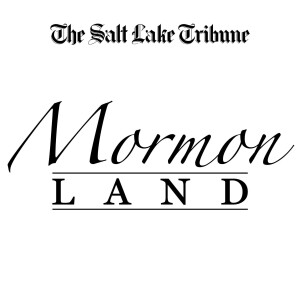
Wednesday Apr 06, 2022
Wednesday Apr 06, 2022
To Sonia Johnson, the effort to pass the Equal Rights Amendment in the 1970s and ‘80s was more than merely a single political cause. It was a turning point in her life.
Leaders of The Church of Jesus Christ of Latter-day Saints in Virginia excommunicated Johnson from the Utah-based faith in 1979 for allegedly spreading false doctrine and working against them but she always maintained it was for exposing details of the church’s national campaign against the proposed constitutional amendment.
The discipline prompted her to evaluate all aspects of Mormonism. It also ended her marriage. At the same time, it propelled her onto the national stage, where the iconic feminist ran for the White House and used her newfound fame on behalf of women’s equality.
Some 35 years later, Kate Kelly, a Washington, D.C., activist also was excommunicated — at the same Virginia meetinghouse as Johnson — for her advocacy in pushing to ordain women to the faith’s all-male priesthood. She, too, is fighting for ratification of the ERA and has written a new book, “Ordinary Equality,” about the continuing quest to enshrine women’s rights in the Constitution.
On this week’s show, Johnson and Kelly discuss their ousters from their former faith, their current feelings toward the church, their advocacy for the ERA and its prospects, along with other women who have battled for the cause of equality.
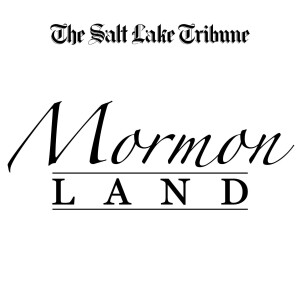
Wednesday Mar 30, 2022
Wednesday Mar 30, 2022
In January, Salt Lake Tribune columnist Gordon Monson stepped away from writing about the WNBA, NBA, NFL, NCAA, MLS, MLB and the alphabet soup of the sports world to comment on another acronym: LDS.
A practicing and believing member of The Church of Jesus Christ of Latter-day Saints, he rattled off 20 reforms he’d like to see his faith undertake.
Now, Monson again departs from the Utah Jazz stretch drive, college football spring drills and March Madness matchups to offer, in a sort of journalistic makeup call, 20 things he likes about his church — from its lay clergy and meetinghouse basketball courts to its opportunities for service and its emphasis on Jesus.
On this week’s show, Monson discusses the positives he sees in the church today.
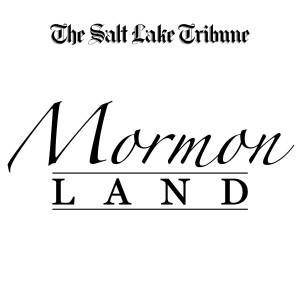
Wednesday Mar 23, 2022
Wednesday Mar 23, 2022
Almost a year ago, noted Latter-day Saint historian and prodigious researcher D. Michael Quinn died at age 77.
Quinn, who retained his belief in the founding events of The Church of Jesus Christ of Latter-day Saints until his death, was pressured to resign from Brigham Young University and subsequently excommunicated from the faith in 1993 as part of the famed “September Six” for his writings about women and the priesthood, as well as about post-Manifesto polygamy.
For the past 11 months, friends and fellow academics have discussed the scholar’s legacy. On March 25, many of them will gather at the University of Utah for a one-day conference to examine and celebrate Quinn’s life.
In addition, Signature Books recently published a new biography of Quinn by historian and archivist Gary Topping. Titled simply “D. Michael Quinn: Mormon Historian,” the book helps flesh out the multiple aspects of Quinn’s identity as queer, Chicano and fiercely independent.
Meanwhile, Barbara Jones Brown, Signature’s new director, is researching Quinn’s unpublished memoirs, discovered by his children after his death.
On this week’s show, Topping and Brown examine Quinn’s life and legacy, his battles with the faith’s hierarchy and with his own identity, as well as his unwavering commitment to an honest telling of Mormon history and how he was ahead of his time.
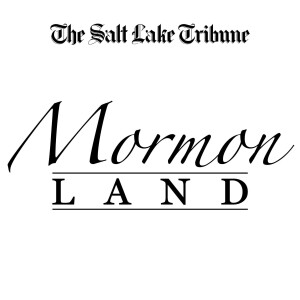
Wednesday Mar 16, 2022
Wednesday Mar 16, 2022
Taylor Kerby persistently feared he would fall short of God’s love — no matter how many prayers he offered, no matter how often he read or recited scriptures and no matter how pure he kept his thoughts.
Growing up in The Church of Jesus Christ of Latter-day Saints, Kerby fixated on living every commandment, avoiding a hint of anything that could be termed a sin. Righteousness was not a desire or a goal or a pursuit. It was life, and it was crippling him.
He suffered from “scrupulosity,” an obsessive-compulsive disorder that focuses on moral rectitude and brings with it pathological guilt.
As a teenager, this religious mania “was all-encompassing, flowing into every aspect of my life and informing the most insignificant decision,” Kerby writes in his new book, “Scrupulous: My Obsessive Compulsion for God.”
On this week’s show, he talks about what that was like, how he learned to deal with it and where his faith is today.
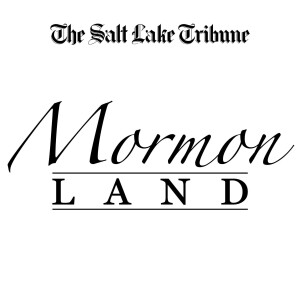
Wednesday Mar 09, 2022
Wednesday Mar 09, 2022
Members of The Church of Jesus Christ of Latter-days Saints across the United States overwhelmingly lean Republican, vote Republican and identify as Republican.
This week’s guest is not one of them.
As national director of Latter-day Saints for Biden-Harris, Robert Taber strives to swing more members toward a different direction by campaigning for the victorious Democratic ticket before the election and lobbying for the administration’s proposals afterward.
He recently endorsed Judge Katanji Brown Jackson’s historic nomination to the U.S. Supreme Court, for instance, and urged the Senate to confirm her as the country’s first Black female justice.
On this week’s show, Taber discuss his partisan preferences, the issues of the day, the intersection of politics and faith, and his hopes for converting more Latter-day Saints to a new way of viewing the governmental landscape.
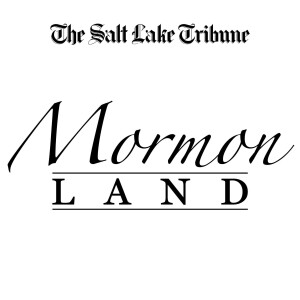
Wednesday Mar 02, 2022
Wednesday Mar 02, 2022
The world watched last week as Russian troops invaded Ukraine. Caught in the crosshairs were more than 11,000 Ukrainian members of The Church of Jesus Christ of Latter-day Saints.
In this special episode, Salt Lake Tribune journalists spoke with Latter-day Saints across Ukraine — and some fleeing the Eastern European nation — to learn about how they were faring, as well as how their congregations have banded together before and after the bombs started to drop.
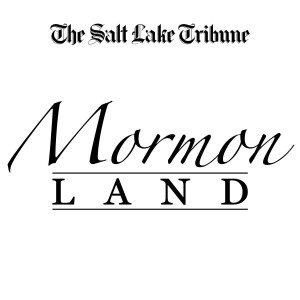
Wednesday Feb 23, 2022
Wednesday Feb 23, 2022
Coming into 2022, Brigham Young University faced a federal investigation about its discrimination against LGBTQ students, allowing heterosexual couples to exhibit “romantic behavior,” while forbidding the same for same-sex couples.
Eventually, the Department of Education’s Office for Civil Rights dismissed the investigation, saying the Provo school, owned and operated by The Church of Jesus Christ of Latter-day Saints, is exempt from federal laws prohibiting gender-based discrimination. These exemptions began in 1976 under then-BYU President Dallin Oaks.
Other issues have since surfaced at the faith’s flagship campus — such as canceling gender-affirming voice therapy for transgender clients, placing stricter limits on protests, and dealing with fallout from a controversial speech by religion professor Brad Wilcox.
On this week’s show, Michael Austin, a BYU alumnus and executive vice president of academic affairs at the University of Evansville, a Methodist school in Indiana, talks about the challenges facing BYU and its academic standing.
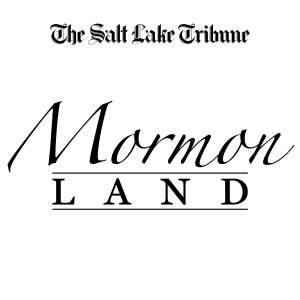
Wednesday Feb 16, 2022
Wednesday Feb 16, 2022
Race is a fraught topic in The Church of Jesus Christ of Latter-day Saints.
For more than 125 years, the Utah-based faith denied Black members access to its priesthood and temples. That exclusion ended in 1978, but discrimination and racism have persisted. And, though the church has formed an alliance with the NAACP, and church leaders have strongly condemned all forms of racism and bigotry, some members continue to resist change.
In a recent speech, a Brigham Young University professor and high-ranking church leader defended the former priesthood/temple ban as part of God’s timing.
On this week’s show, Black Latter-day Saint scholar Janan Graham-Russell, a graduate student at Harvard University who is spending the year at the University of Utah as a Mormon studies fellow, discusses that speech by Brad Wilcox — who has apologized twice for his remarks — and the ongoing issue of racism among church members.

More Mormon Land
There's more to "Mormon Land" than just the podcast. You can get access to episode transcripts, Tribune faith stories and more on Patreon.
Sign up for the free weekly Mormon Land newsletter to get the latest happenings about the church from around the world.
And follow Mormon.Land on Instagram.







